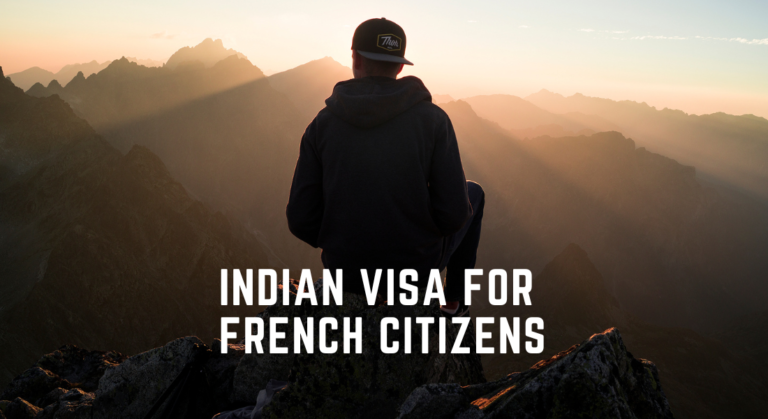
Understanding the Indian Visa System
The Indian visa system is designed to facilitate the entry of foreign nationals into the country for various purposes. For French citizens, there are multiple visa categories available, each tailored to specific needs. The most common types include tourist visas, business visas, student visas, and employment visas. Understanding the nuances of each type is essential for a smooth travel experience.
A tourist visa is primarily intended for those wishing to explore India for leisure. This visa generally allows a stay of up to six months, depending on the specific guidelines issued by the Indian government. French nationals planning a short holiday or a cultural experience will find this visa category most relevant.
For individuals aiming to engage in business-related activities, the business visa is an appropriate option. This visa permits attendance at conferences, meetings, or establishing business relationships. French citizens should note that the business visa typically allows for a stay of six months, with the potential for extensions based on specific conditions.
Students wishing to pursue educational qualifications in India can apply for a student visa. This visa supports holders in attending a recognized institution, and the duration is usually tied to the length of their academic program. French students should be prepared to provide proof of enrollment along with other supporting documents during the application process.
Work opportunities can be pursued through an employment visa, which is specifically designed for foreign employees hired by Indian companies. Typically, the employment visa allows stays of up to five years but can be renewed based on employment contracts.
In addition to these visa types, French travelers should be aware of any specific requirements or documents needed for their application, such as passport validity and financial proof. Selecting the appropriate visa is vital to ensure compliance with Indian immigration laws, thus avoiding any unwanted complications during travel.
Visa Application Process for French Citizens
The Indian Visa For FRENCH CITIZENS wishing to travel to India is structured and straightforward, offering several pathways depending on the type of visa required. The initial step in this process is determining the appropriate visa category, such as tourist, business, or student visa. Once the category has been established, applicants can proceed to gather the required documentation.
French citizens can apply for an Indian vi-sa through various channels—online applications have simplified the process significantly. Applicants can visit the official Indian vi-sa website to fill out the application form, upload the necessary documents, and pay the visa fees electronically. It is crucial to retain a copy of the confirmation page once the application is submitted. Additionally, payments can typically be made via credit or debit cards, facilitating a smoother transaction.
After processing the application, which can take anywhere from a few days to several weeks, applicants receive an email notification regarding their vi-sa status. French citizens should be aware of potential biometric requirements or an interview, especially for specific visa categories like long-term student or employment visas.
Understanding Visa Regulations and Compliance
Obtaining an Indian visa is a vital step for French citizens wishing to enter India for various purposes such as tourism, business, or study. However, it is equally important to understand the regulations and compliance aspects that accompany this vi-sa. Adhering to the established guidelines is essential to avoid any legal complications during your stay.
Firstly, the conditions of stay stipulated in the vi-sa should be carefully reviewed. For those intending to stay longer than the specified period, registering with the Foreigners Regional Registration Office (FRRO) is mandatory. This requirement is particularly important for long-term stays, which may include students or expatriates working in India. Registration is usually required within 14 days of arrival if the vi-sa is for more than 180 days.
Furthermore, there are procedures in place for extending your stay. French citizens who wish to remain in India beyond the original vi-sa validity must apply for an extension through the appropriate FRRO channels.
Not adhering to the terms of the vi-sa, such as overstaying the permitted duration, can lead to serious consequences. Penalties may include fines, detainment, or even bans on re-entry into India for a specified time. Therefore, it is vital to comply with the Indian vi-sa regulations and maintain updated knowledge of any changes in policies.
In conclusion, understanding vi-sa regulations and compliance is crucial for French citizens visiting India. Awareness of the requirements for registering with the FRRO, potential extension of stay procedures, and the repercussions of overstaying will help ensure a smooth experience during your time in India.
Additional Tips for Traveling to India
However, it is essential to be prepared. Health and safety should be a priority; travelers are advised to consult a healthcare professional before departure to get necessary vaccinations and health advice, particularly regarding food and water safety. It is advisable to drink bottled water, and eat cooked food to avoid common gastrointestinal issues.
Understanding local cultural etiquette can enhance the travel experience in Indian Visa For GEORGIAN CITIZENS. For instance, it is customary to greet individuals with a ‘Namaste’ and a slight bow, and showing respect for local customs and traditions is vital. Dress modestly, particularly when visiting religious sites. Being mindful of local customs will foster goodwill and a positive interaction with residents.
With respect to local transportation, the options are vast and varied. French travelers should consider using prepaid taxis or app-based services for convenience and safety. Additionally, trains are a popular way to travel across the country, connecting numerous destinations, while buses offer a more budget-friendly alternative. Familiarize yourself with local transportation systems to navigate efficiently and avoid misunderstandings.
Each region offers unique attractions that can captivate any traveler. Consider creating an itinerary that highlights a mix of cultural, historical, and natural experiences.
Investing in travel insurance is strongly recommended. This provides peace of mind in emergencies and covers unexpected medical expenses or trip cancellations. Lastly, consider utilizing digital resources or travel apps that offer information on local customs, language, and itineraries to ensure a smoother experience.